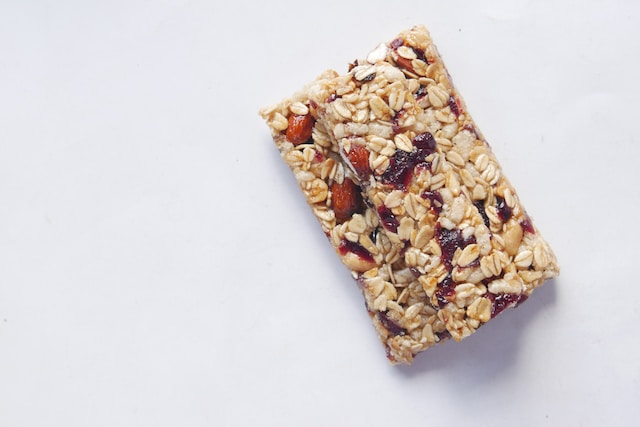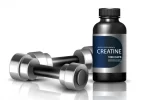Protein bars have become a popular snack for people looking for a quick and easy way to get a boost of protein. But what happens if you eat protein bars without working out? Is it bad for your health?
In this article, we’ll explore the pros and cons of eating protein bars without working out, including the potential benefits and risks. We’ll also provide tips on how to choose the right protein bar for your needs and goals, and how to incorporate them into your diet in a healthy way.
By the end of this article, you’ll have a better understanding of whether it’s bad to eat protein bars without working out and how to make the most of this popular snack. So, if you’re ready to explore the world of protein bars and their impact on your health, let’s dive in and get started!
Understanding Protein Bars
What Are Protein Bars?
Protein bars are a type of snack that are marketed as a convenient and healthy way to consume protein. They are often used by athletes and fitness enthusiasts as a quick and easy source of protein after a workout, but they can also be consumed as a snack throughout the day.
Protein bars come in a variety of flavours and types, including whey protein bars, soy protein bars, and plant-based protein bars. Some protein bars also contain other ingredients such as nuts, seeds, and fruit.
Nutritional Content of Protein Bars
The nutritional content of protein bars can vary widely depending on the brand and type. Some protein bars can be high in calories, sugar, and saturated fat, while others may be lower in these nutrients. It is important to read the nutrition label carefully to determine the nutritional content of a protein bar.
Here is an example of the nutritional content of a typical protein bar:
| Nutrient | Amount |
|---|---|
| Calories | 200 |
| Protein | 20g |
| Fat | 8g |
| Saturated Fat | 2g |
| Carbohydrates | 21g |
| Fiber | 5g |
| Sugar | 6g |
The Role of Protein in the Body
Protein and Muscle Growth
Protein is indispensable for constructing and restoring muscles. When you exercise, you generate tiny tears in your muscles, and protein aids in mending those tears, resulting in muscle growth.
Protein encompasses amino acids, which are the fundamental elements of muscle tissue. Without sufficient protein, your muscles will not possess the requisite materials to repair and grow.
Protein and Energy Production
Protein is also involved in energy production. When you eat protein, your body breaks it down into amino acids, which can be used to create glucose.
Glucose is a form of sugar that your body utilizes for energy. If you do not intake sufficient protein, your body may not possess enough glucose to power your everyday activities.
Eating Protein Bars Without Working Out
If you’re someone who’s always on the go, you might find yourself reaching for a protein bar as a quick and easy snack. But is it bad to eat protein bars without working out? Let’s take a look at the potential benefits and possible drawbacks.
Potential Benefits
Protein bars are a practical protein source that is indispensable for constructing and restoring muscle tissue. They can also be a suitable alternative for individuals who find it challenging to fulfil their daily protein needs purely through whole foods.
Additionally, some protein bars may contain other nutrients, such as fibre, vitamins, and minerals, that can help support overall health.
Possible Drawbacks
While protein bars can be a convenient snack, they may not be the best choice for everyone. For one, many protein bars are high in added sugars, which can contribute to weight gain and other negative health outcomes.
Additionally, some protein bars may contain artificial sweeteners, preservatives, and other additives that may not be beneficial for your health.
Another potential drawback of eating protein bars without working out is that they may not be as effective at building muscle as whole food sources of protein. This is due to the fact that whole foods encompass a broader range of nutrients that collaborate to foster muscle growth and recovery.
Alternatives to Protein Bars
If you’re looking for alternatives to protein bars, there are plenty of options available. Here are a few alternatives to consider:
Natural Sources of Protein
One of the best alternatives to protein bars is to get your protein from natural sources. There are plenty of foods that are high in protein, including:
- Lean meats like chicken, turkey, and fish
- Eggs
- Dairy products like milk, cheese, and yogurt
- Legumes like beans, lentils, and chickpeas
- Nuts and seeds like almonds, peanuts, and chia seeds
These foods not only provide protein, but they also contain other important nutrients like vitamins and minerals.
Protein Shakes and Supplements
Another alternative to protein bars is to use protein shakes or supplements. Protein shakes can be made with a variety of ingredients, including whey protein powder, milk, fruit, and vegetables. They’re a quick and easy way to get a high dose of protein without having to eat a full meal.
Protein supplements come in a variety of forms, including powders, capsules, and bars. They’re a convenient way to get protein on the go, but it’s important to choose a high-quality supplement that contains all of the essential amino acids.
Conclusion
In conclusion, eating protein bars without working out is not inherently bad for you. However, it is important to consider the nutritional content of the bar and how it fits into your overall diet and fitness goals.
Protein bars can be a practical and delectable approach to supplement your protein intake, particularly if you are on the move or have a hectic schedule. However, not all protein bars are created equal. Some may be high in sugar or artificial ingredients, which can negate the potential health benefits of the protein.
If you are contemplating incorporating protein bars into your diet, ensure to scrutinize the label diligently and opt for bars that are low in sugar and high in protein. Additionally, be mindful of your overall calorie intake and make sure that the protein bar fits into your daily caloric needs.
Ultimately, whether or not it is “bad” to eat protein bars without working out depends on your individual goals and dietary needs. As with any food or supplement, it is important to make informed choices and consult with a healthcare professional if you have any concerns.







